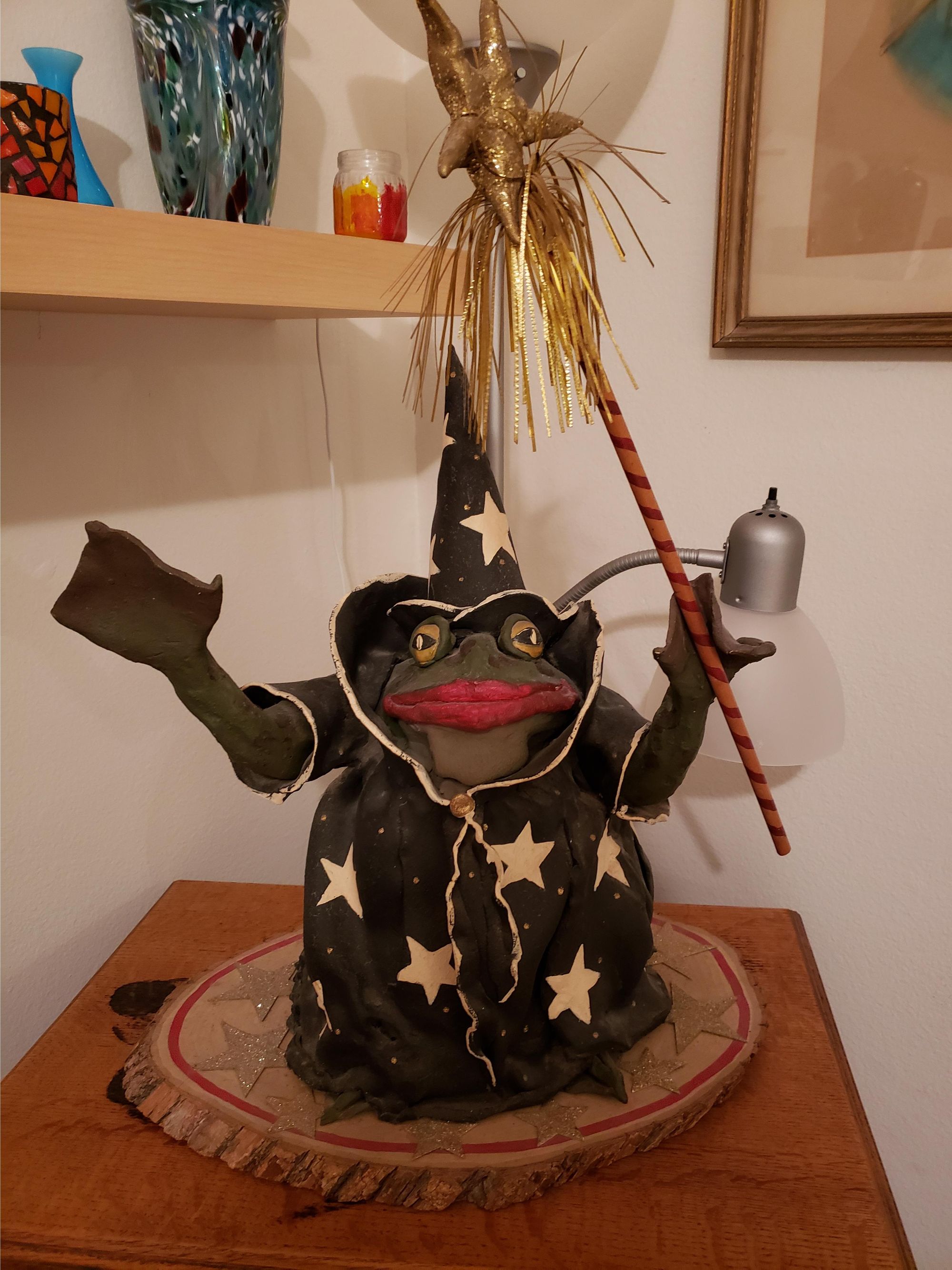Sitting in my father’s living room, I study and ponder its contents. I am surrounded by his life. The piece of palm tree signed by his friends and dated “Irma 2017.” The hurricane he weathered, hunkered down in relative safety in a friend’s home. The menagerie of animal fetishes, collected by my stepmother and him over their years in Albuquerque. The beautiful and varied pieces of art, on the walls and in a handful of curio cabinets throughout the room, documenting his travels as an international media consultant. The pictures of his grandparents; mother and father; my stepmother, Charlie; my family; and his dogs, Heidi, Snoopy, LD, Bailey, and Bucky. The many gifts I gave him for Father’s Day, Christmas, and his birthday—mostly items in the Art Deco style—a design era to which he introduced me and we both love. A ceramic frog draped in a blue cloak with white stars and a magic wand—a cherished and frivolous gift from Charlie. A quilt with hundreds of names sewn onto it, including those of my great-grandparents, casually draped over the light tan leather couch. This room is steeped with his presence even in his absence.
In juxtaposition to these special mementos are signs of his illness—scattered prescription pill bottles and dirty tissues—an illness of which we spoke, but the seriousness of which he hid from me until he called only a few days ago with the words, “It is time.”
His sandals are placed by the side of his favorite easy chair, likely slipped off as he was taken away by ambulance. They show wear, a metaphor for the toll cancer took on his body.
In my youth, my father was not very demonstrative about his feelings. As he lost his parents and wife to illness, he began to express his love verbally. In this room, I feel his spirit, and I see his love for life and those with whom he shared it. The room exemplifies the sentimentality he could not verbalize.
We share a special few days. Over and over we express our love for one another. Through all of this heartache and tears, our love is truly the most important thing, overshadowing our missteps and mistakes with one another. I ask him to tell his parents, Charlie, and Tom how much we love and miss them. I want to believe he is able to deliver the message.
I am overwhelmed by all there is here. How do I choose what pieces of his life we take with us and what is left for others to manage? Everything in this room meant something to him, and I will never know the stories behind it all. The grandness of his life is whittled down to the few things I can fit in a box to be shipped back home.
I can tell his spirit has left his body, even though his chest still rises and falls in rhythmic and labored breaths. He is unresponsive to my touch, kisses, or words. There is an emptiness which belies the amazing and generous man I knew and loved. Today, I lean into him and repeated his own words back to him, “It is time.”
He will take a piece of my heart with him when he finally succumbs. And I will take pieces of his life home with me to cherish, a reminder of the otherworldly bond we will share in his passing.


